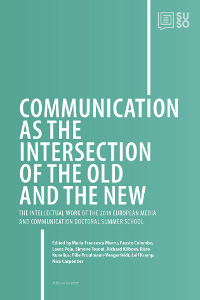
| |||
Communication
| |||
| Title chapter: | Power to the patient? Studying the balance of power between patient and GP in relation to Web health information | ||
| Author: | Edgard Eeckman | ||
| Keywords: | power, interpersonal communication, dependence, autonomy, patient empowerment | ||
| Abstract: | Web health information is stated as converting the asymmetric power balance between patient and medical doctor. Is it? Or is the influence of health information retrieved on the Web on the power balance overestimated? To analyse the patient-GP (general practitioner) relationship, this study applies the resource dependency theory (Emerson, 1962). It defines social power over actor B by actor A as the dependence of actor B on the resources of actor A. The dependence on a resource is directly influenced by the value and the availability of the resource for actor B and by the concepts of perceived risk, uncertainty, perceived severity and trust, and in an indirect way, by the charisma and legitimate authority of actor A. A social relationship is mostly a matter of mutual dependence. Each actor has ways to resist his dependence and the exertion of “resource power” can come with a cost. Resources of dependence and resistance on the macro-, meso- and micro-level are considered. A mixed research method is applied consisting of different quantitative and qualitative methods. The results show that the Web has the potential to narrow but not to bridge the information and knowledge gap between patient and GP and thus the patient-GP power balance remains asymmetric. Moreover, the patient remains dependent on important resources other than information. Health information through the Web mainly influences the communication between patient and GP. Patient empowerment is a valuable concept but health information through the Web is not a silver bullet to achieve this. | ||
| Click here to download full chapter [pdf] | |||
|
The | |||